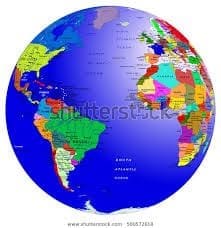The Northern India Textile Mills’ Association, popularly known as NITMA is an apex association of No rth India serving the interest of textile units. All the large textile mills in the Northern part of India are associated with NITMA and the combined turnover of its members is approximately 50,000 Crores (USD 8 Billion). It was formed in 1958 and represents industry for all policy matters and disseminates information apart from condu cting conferences, exhibitions, seminars & workshops.
NITMA, on behalf of its members sent following suggest ions to Ministry of Commerce & I ndustry & Ministry of Textiles on Non-Tariff Barriers that India can impose on its competitors, i.e. China, Vietnam, Bangladesh, etc:
- Restriction on quantity of import under HS 55092100 to 2000 tons/month by introducing import licenses that are issued by the government to the importers as imports have surged to 9000 tons/month from 500 tons/month in a period of only 2 years (An increase of 1592% over a period of 5 years).
- The RKM of all products under 55092100 should be 40 or more to meet the requirement of next generation knitting & weaving
- Articles imported under 55092100 should be free of carcinogenic heavy metal compounds (Sb2O3) of Antimony (Sb) which are released into the Indian water bodies when fabrics made from these imported yarns are dyed at high temperatures thereby endangering both humans & the
- EU flower &Oekotex certificate must accompany all import shipment under 55092100 to prev ent the entry of any other hazardous substances into India through these
- Imports under 55092100 should only be permitted against advance license so that the dumping from Indonesia, Vietnam & China can be harnessed to increase India’s exports wh ile at the same time protecting the domestic manufacturers from unfair
- Imports under 55092100 should only be permitted if the importer can pay directly to the exporter with his own foreign exchange obtained through his export activities abroad to further boost India’s exports & keep a check on surging imports to improve the export -import
Above measures were suggested by NITMA in the wake of following steps taken by Indonesia:
- Indonesia to tighten textile import rules following influx of goods: official: (Source: Reuters, October 11, 2019) – Indonesia’s Trade Ministry will tighten restrictions on textile imports in an effort to protect loca l industries, an official told reporters on The ministry will require all textile importers to gain approval from the government before they can ship in textile goods, foreign trade director genera l IndrasariWisnuWardhana said. The revision to regulations is targeted to be issued before President JokoWidodo, who takes office f or the second term onOct. 20, appoints new cabinet ministers, he said.
The restriction is aimed at protecting local producers of products such as certain types of yarns, f abrics and other goods.“So products that have been produced domestically, should no longer be imported,” Wardhana said.Ade Sudrajat, chairman of Indonesia’s Textile Association (API), said the domestic textile industry has weakened in the past three years due to an influx of imported textiles, combined with sluggish consumption by Indone sian consumers.Imports of textile fabrics rose by 74% between 2016 and 2018, the trade ministry said citing data fr om the statistics agency. Indonesia imported 413,813 tonnes of fabrics in 2018, it said.
- Indonesia launches safeguard probe on 3 textile items: (Source: Fibre2Fashion, September 30, 2019) – Indonesia recently notified the World Trade Organisation’s (WTO) Committee on Safeguards that it initiated on September 18 three safeguard investigations —the first on fabrics; the second on yarn (other than sewing th read) of synthetic and artificial staple fibres; and the third on curtains (including drapes), interior bl inds, bed valances and other furnishing “Those having substantial interest and wishing to be considered as intere sted parties in this investigat ion should submit written request within a period of 15 days in Indonesia from the date of initiatio n to the Investigating Authority,” WTO said on its website. A safeguard investigation seeks to determi ne whether increased imports of a product are causing, or is threatening to cause, serious injury to a domestic industry. During a safeguard investigation, importers, exporters and other interested parties may present evidence an d views and respond to the presentations of other parties.
Crux of the above mentioned art icles in simple words would be:
- Indonesia has imposed a Non-Tariff Barrier in order to completely stop the import of all textile goods that are produced domestically on 11 th October,
- Indonesia had also launched Safeguard duty investigation on the HS Code 55092100 (Synthetic yarn other than sewing thread) on 30th September,2019.
- Most importantly, imports of this particular product (HS code 55092100 – Synthetic yarns other sewing thread) from Indonesia into India have surged from 183 tons in December 2016 to 5,204 tons in July 2017, that is, an 2743% increase in quantity in a period of 5 years.
This is two-faced approach from Indonesia wherein they are exploiting the benefits of zero duty available to them under the FTA with India & at the same time, in order to prevent India to enjoy the same benefits, they have imposed the above Non-Tariff Barriers on Indian textile goods.
In view of the above, we suggest the above mentioned Non-Tariff Barriers be imposed on this HS Code – 55092100 so as to prevent Indonesia& other countries from such malpractices.

